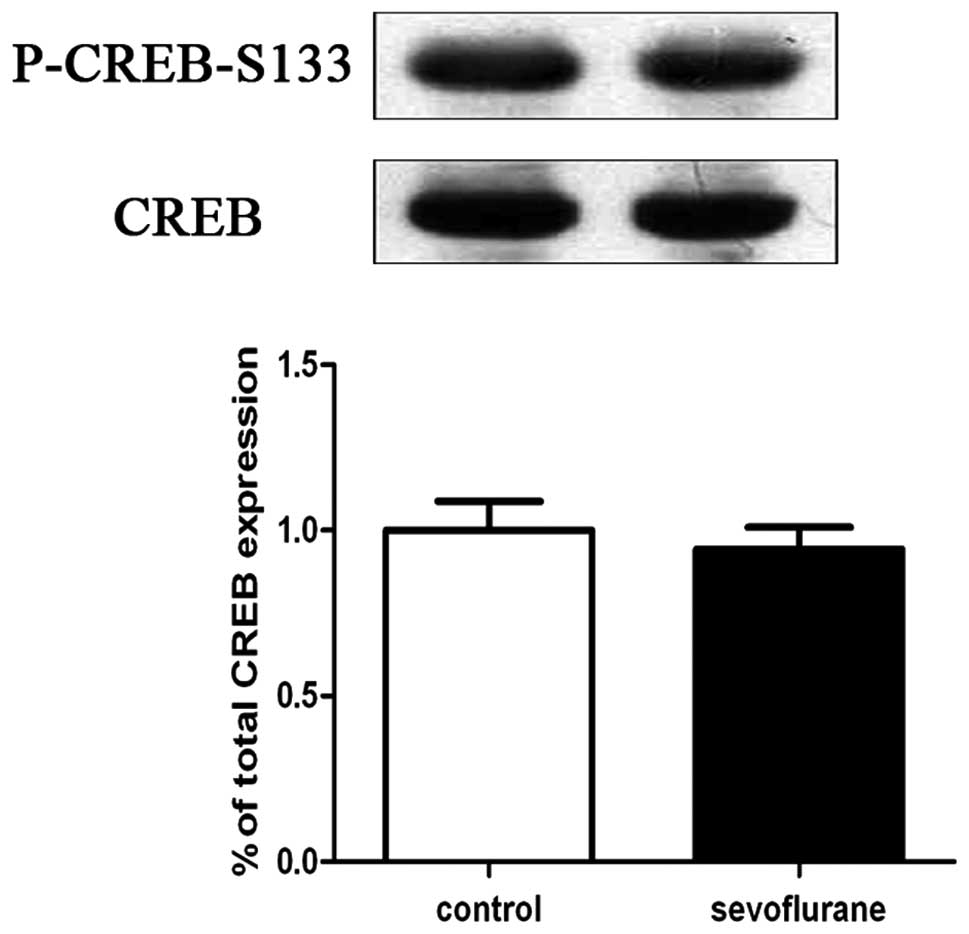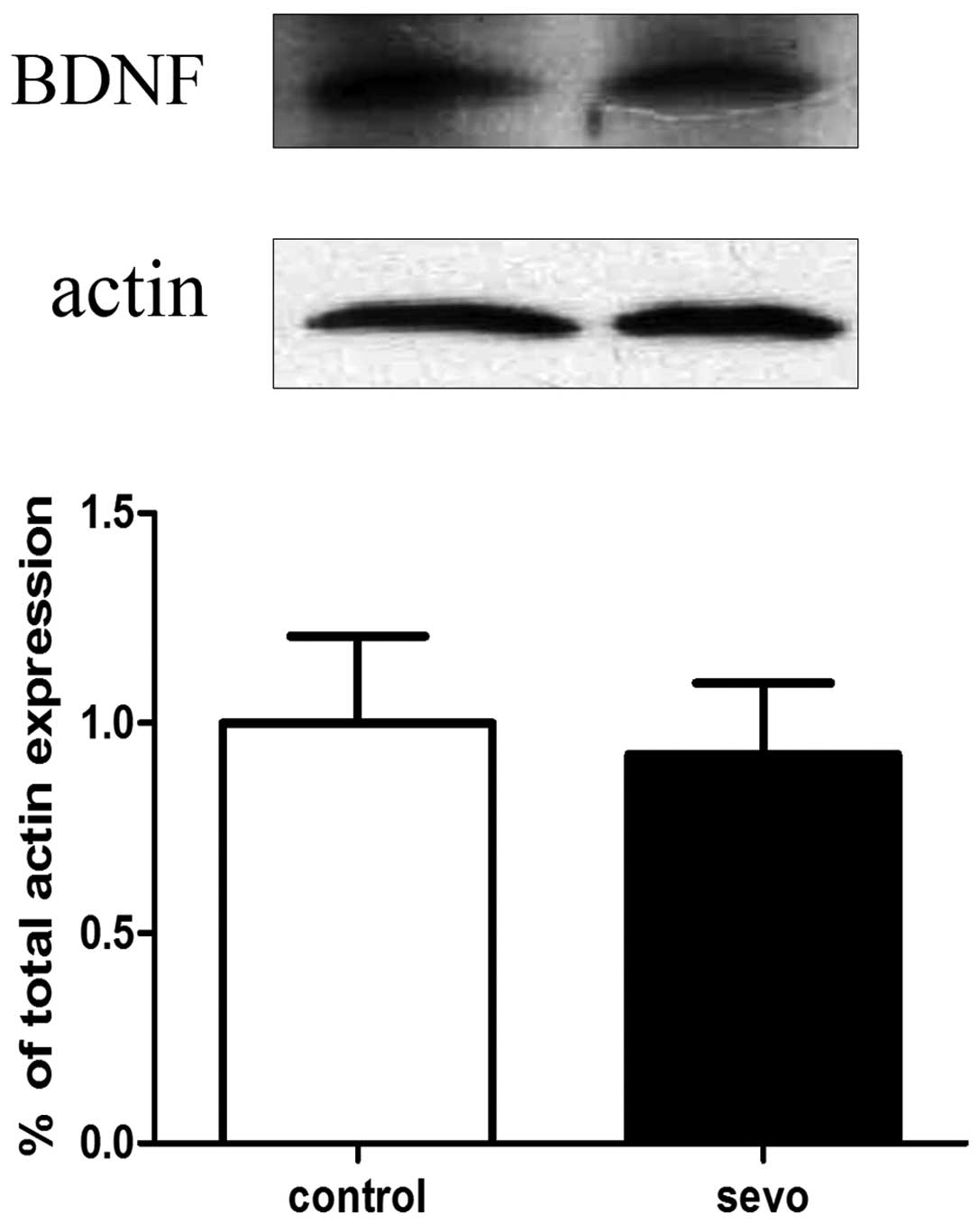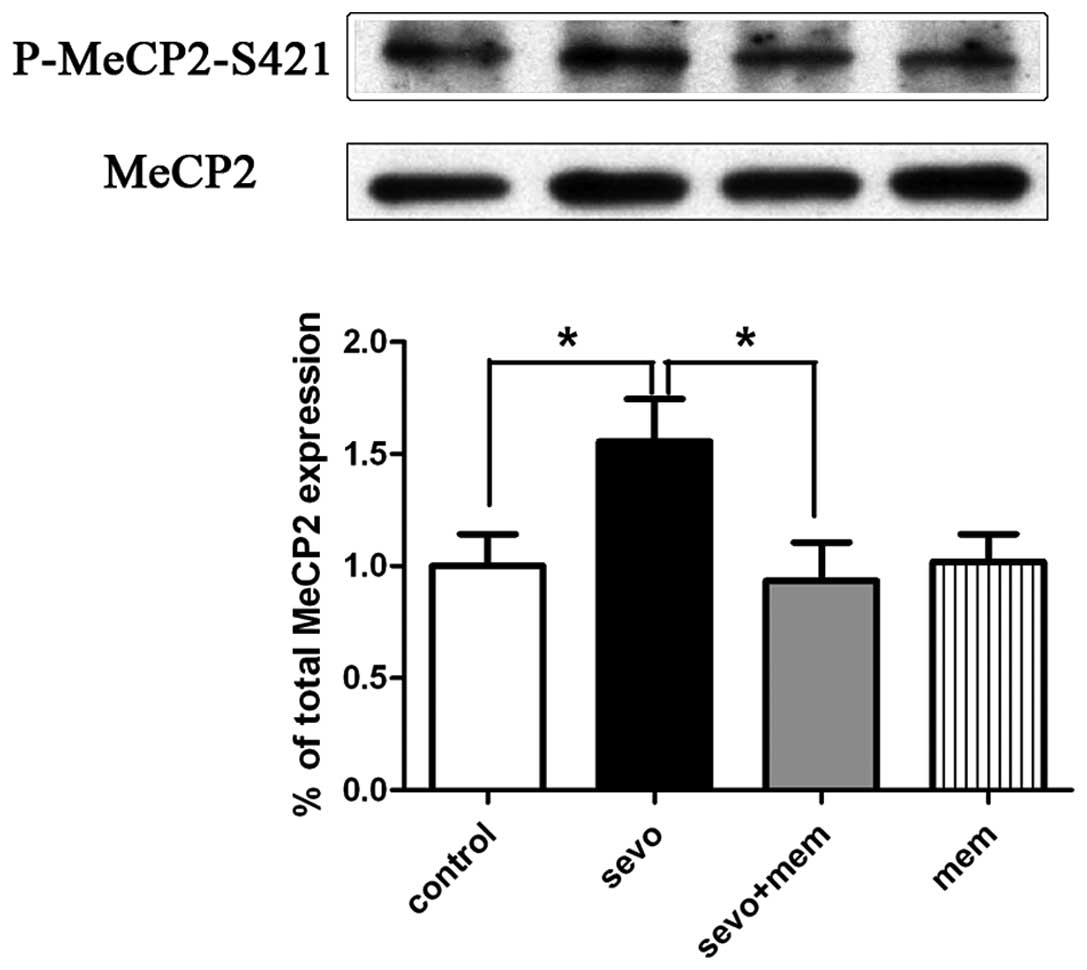|
1
|
Jevtovic-Todorovic V, Hartman RE, Izumi Y,
et al: Early exposure to common anesthetic agents causes widespread
neurodegeneration in the developing rat brain and persistent
learning deficits. J Neurosci. 23:876–882. 2003.
|
|
2
|
Liang G, Ward C, Peng J, Zhao Y, Huang B
and Wei H: Isoflurane causes greater neurodegeneration than an
equivalent exposure of sevoflurane in the developing brain of
neonatal mice. Anesthesiology. 112:1325–1334. 2010. View Article : Google Scholar : PubMed/NCBI
|
|
3
|
Loepke AW, Istaphanous GK, McAuliffe JR,
et al: The effects of neonatal isoflurane exposure in mice on brain
cell viability, adult behavior, learning, and memory. Anesth Analg.
108:90–104. 2009. View Article : Google Scholar : PubMed/NCBI
|
|
4
|
Head BP, Patel HH, Niesman IR, Drummond
JC, Roth DM and Patel PM: Inhibition of p75 neurotrophin receptor
attenuates isoflurane-mediated neuronal apoptosis in the neonatal
central nervous system. Anesthesiology. 110:813–825. 2009.
View Article : Google Scholar
|
|
5
|
Satomoto M, Satoh Y, Terui K, et al:
Neonatal exposure to sevoflurane induces abnormal social behaviors
and deficits in fear conditioning in mice. Anesthesiology.
110:628–637. 2009. View Article : Google Scholar
|
|
6
|
Kishi N and Macklis JD: MECP2 is
progressively expressed in post-migratory neurons and is involved
in neuronal maturation rather than cell fate decisions. Mol Cell
Neurosci. 27:306–321. 2004. View Article : Google Scholar : PubMed/NCBI
|
|
7
|
Nguyen MV, Du F, Felice CA, et al: MeCP2
is critical for maintaining mature neuronal networks and global
brain anatomy during late stages of postnatal brain development and
in the mature adult brain. J Neurosci. 32:10021–10034. 2012.
View Article : Google Scholar : PubMed/NCBI
|
|
8
|
Kron M, Howell CJ, Adams IT, et al: Brain
activity mapping in Mecp2 mutant mice reveals functional deficits
in forebrain circuits, including key nodes in the default mode
network, that are reversed with ketamine treatment. J Neurosci.
32:13860–13872. 2012. View Article : Google Scholar
|
|
9
|
Cohen S, Gabel HW, Hemberg M, et al:
Genome-wide activity-dependent MeCP2 phosphorylation regulates
nervous system development and function. Neuron. 72:72–85. 2011.
View Article : Google Scholar : PubMed/NCBI
|
|
10
|
Fuks F, Hurd PJ, Wolf D, Nan X, Bird AP
and Kouzarides T: The methyl-CpG-binding protein MeCP2 links DNA
methylation to histone methylation. J Biol Chem. 278:4035–4040.
2003. View Article : Google Scholar : PubMed/NCBI
|
|
11
|
Bienvenu T and Chelly J: Molecular
genetics of Rett syndrome: when DNA methylation goes unrecognized.
Nat Rev Genet. 7:415–426. 2006. View
Article : Google Scholar : PubMed/NCBI
|
|
12
|
Zhou Z, Hong EJ, Cohen S, et al:
Brain-specific phosphorylation of MeCP2 regulates
activity-dependent Bdnf transcription, dendritic growth, and spine
maturation. Neuron. 52:255–269. 2006. View Article : Google Scholar : PubMed/NCBI
|
|
13
|
Li H, Zhong X, Chau KF, Williams EC and
Chang Q: Loss of activity-induced phosphorylation of MeCP2 enhances
synaptogenesis, LTP and spatial memory. Nat Neurosci. 14:1001–1008.
2011. View
Article : Google Scholar : PubMed/NCBI
|
|
14
|
Tao X, Finkbeiner S, Arnold DB, Shaywitz
AJ and Greenberg ME: Ca2+ influx regulates BDNF
transcription by a CREB family transcription factor-dependent
mechanism. Neuron. 20:709–726. 1998.
|
|
15
|
Areosa Sastre ASF and McShane R: Memantine
for dementia. The Cochrane Library. 2006
|
|
16
|
Mount C and Downton C: Alzheimer disease:
progress or profit? Nat Med. 12:780–784. 2006. View Article : Google Scholar : PubMed/NCBI
|
|
17
|
Zhang X, Xue Z and Sun A: Subclinical
concentration of sevoflurane potentiates neuronal apoptosis in the
developing C57BL/6 mouse brain. Neurosci Lett. 447:109–114. 2008.
View Article : Google Scholar : PubMed/NCBI
|
|
18
|
Simon DK, Prusky GT, O’Leary DD and
Constantine-Paton M: N-methyl-D-aspartate receptor antagonists
disrupt the formation of a mammalian neural map. Proc Natl Acad Sci
USA. 89:10593–10597. 1992. View Article : Google Scholar : PubMed/NCBI
|
|
19
|
Hardingham GE, Fukunaga Y and Bading H:
Extrasynaptic NMDARs oppose synaptic NMDARs by triggering CREB
shut-off and cell death pathways. Nat Neurosci. 5:405–414.
2002.PubMed/NCBI
|
|
20
|
Johnson SA, Young C and Olney JW:
Isoflurane-induced neuroapoptosis in the developing brain of
nonhypoglycemic mice. J Neurosurg Anesthesiol. 20:21–28. 2008.
View Article : Google Scholar : PubMed/NCBI
|
|
21
|
Yon JH, Daniel-Johnson J, Carter LB and
Jevtovic-Todorovic V: Anesthesia induces neuronal cell death in the
developing rat brain via the intrinsic and extrinsic apoptotic
pathways. Neuroscience. 135:815–827. 2005. View Article : Google Scholar : PubMed/NCBI
|
|
22
|
Durand S, Patrizi A, Quast KB, et al: NMDA
receptor regulation prevents regression of visual cortical function
in the absence of Mecp2. Neuron. 76:1078–1090. 2012. View Article : Google Scholar : PubMed/NCBI
|
|
23
|
Lee S, Kim W, Ham BJ, Chen W, Bear MF and
Yoon BJ: Activity-dependent NR2B expression is mediated by
MeCP2-dependent epigenetic regulation. Biochem Biophys Res Commun.
377:930–934. 2008. View Article : Google Scholar : PubMed/NCBI
|
|
24
|
Carouge D, Host L, Aunis D, Zwiller J and
Anglard P: CDKL5 is a brain MeCP2 target gene regulated by DNA
methylation. Neurobiol Dis. 38:414–424. 2010. View Article : Google Scholar : PubMed/NCBI
|
|
25
|
Im HI, Hollander JA, Bali P and Kenny PJ:
MeCP2 controls BDNF expression and cocaine intake through
homeostatic interactions with microRNA-212. Nat Neurosci.
13:1120–1127. 2010. View
Article : Google Scholar : PubMed/NCBI
|
|
26
|
Xia P, Chen HS, Zhang D and Lipton SA:
Memantine preferentially blocks extrasynaptic over synaptic NMDA
receptor currents in hippocampal autapses. J Neurosci.
30:11246–11250. 2010. View Article : Google Scholar : PubMed/NCBI
|


















